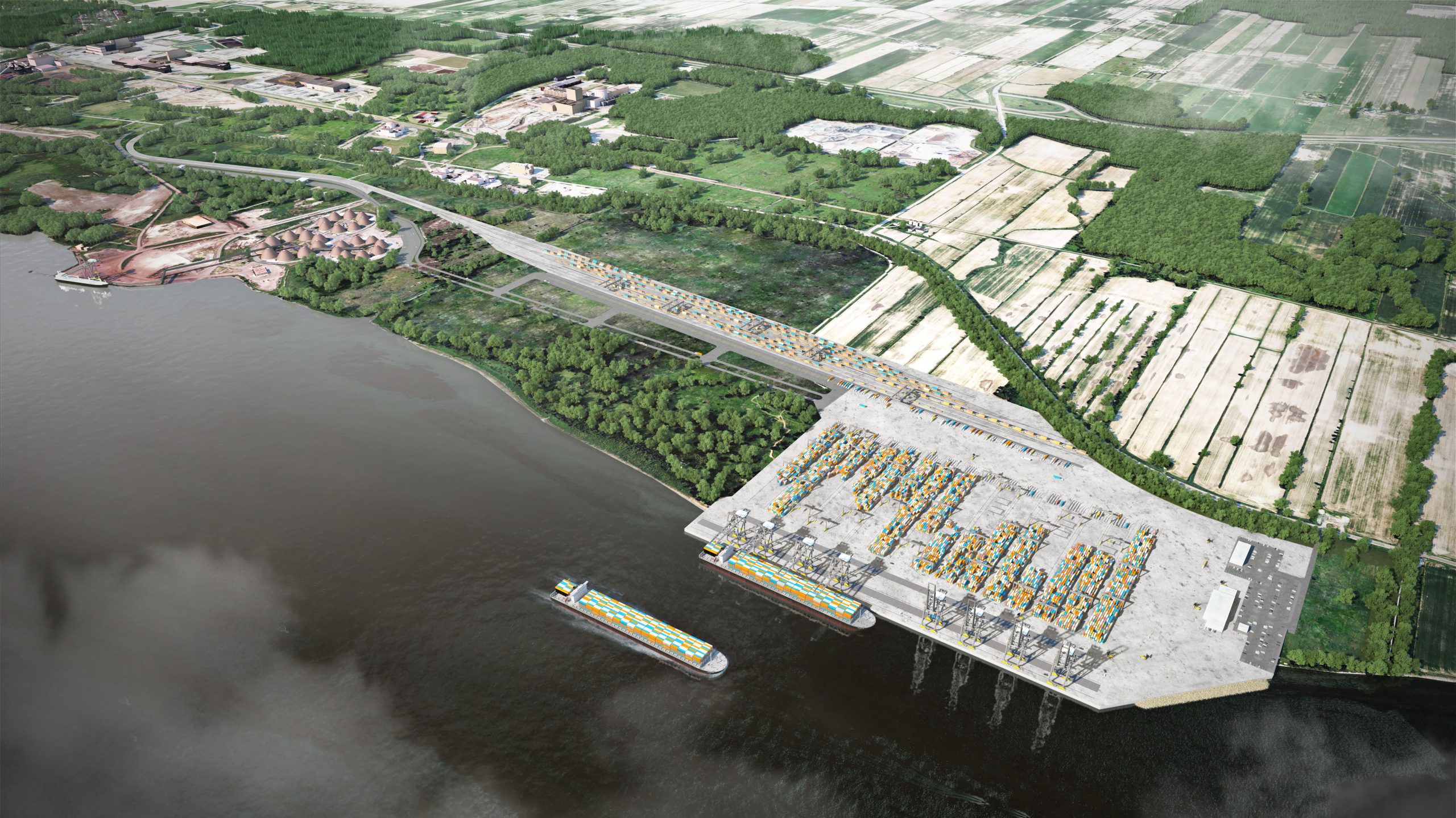The Canada Infrastructure Bank announced today it is committing up to $300 million in financing to the Port of Montreal project to build a new container terminal in Contrecoeur. The port, which handled 1.7 million TEUs in 2018, is counting on the planned new terminal 25 miles downstream on the St. Lawrence River to meet future demands as container traffic growth in recent years is expected to soon stretch capacity in the five existing box terminals.
“It’s excellent news,” said Michael Fratianni, President and CEO of Montreal Gateway Terminals Partnership, largest terminal operator at the Port of Montreal. “Logistec and MGT are working collaboratively to see whether we can operate the facility at Contrecoeur,” he told Maritime Magazine.
The project is valued at $750 million. The terminal would boost the port’s capacity from 2.1 million TEUs to 3.5 million TEUs. Once final regulatory approvals are made and a full financing package (involving the port, government and industry stakeholders) is assembled, the Montreal Port Authority would set the wheels in motion for new terminal completion by 2023,
“The Contrecoeur expansion will strengthen and diversify our trade with other countries,” said Pierre Lavallée, President and CEO of the CIB. “Given the Port’s central role in the Canadian economy, this wealth creation will have an impact on the entire country.”
As part of a joint press conference with the Port of Montreal, Mr. Lavallée also highlighted the eco-responsibility of the Contrecoeur project. “The CIB is now participating in seven projects. They are in different sectors, different regions, and all have potential for green benefits. Without the Contrecoeur terminal, ships would have to travel to U.S. ports, which would increase GHG and air pollutant emissions.”
The CIB is a Crown Corporation that is investing $35 billion in infrastructure projects. The Contrecoeur project is its first major involvement in the transportation sector.
The Contrecoeur expansion will allow the Port of Montreal to increase its container handling capacity, noted Sylvie Vachon, President and CEO of the Port of Montreal. “We will be more competitive, which will strengthen Montreal’s role as a hub for maritime trade in Eastern Canada. This will support national economic prosperity through job creation and supply chain development,” she said.
According to the CIB, its financial commitment is a provision of long-term capital to bridge the gap between periods of construction, revenue growth and achieving profitability of the container terminal.
Canada’s new Minister of Infrastructure and Communities, Catherine McKenna, welcomed the announcement. “The port’s infrastructure will be modernized using sustainable development planning to reduce the project’s greenhouse gas emissions. The new terminal for shipping containers will reduce capacity issues at the Port of Montreal, the largest port in Eastern Canada. In turn, this will strengthen Canada’s economy and international trade by helping importers and exporters get their goods to market faster.”
For his part, Transport Minister Marc Garneau pointed out that “Contrec?ur’s project is central to the development of the Canadian supply chain and the Greater Montreal’s positioning as a gateway to the North American market.”


